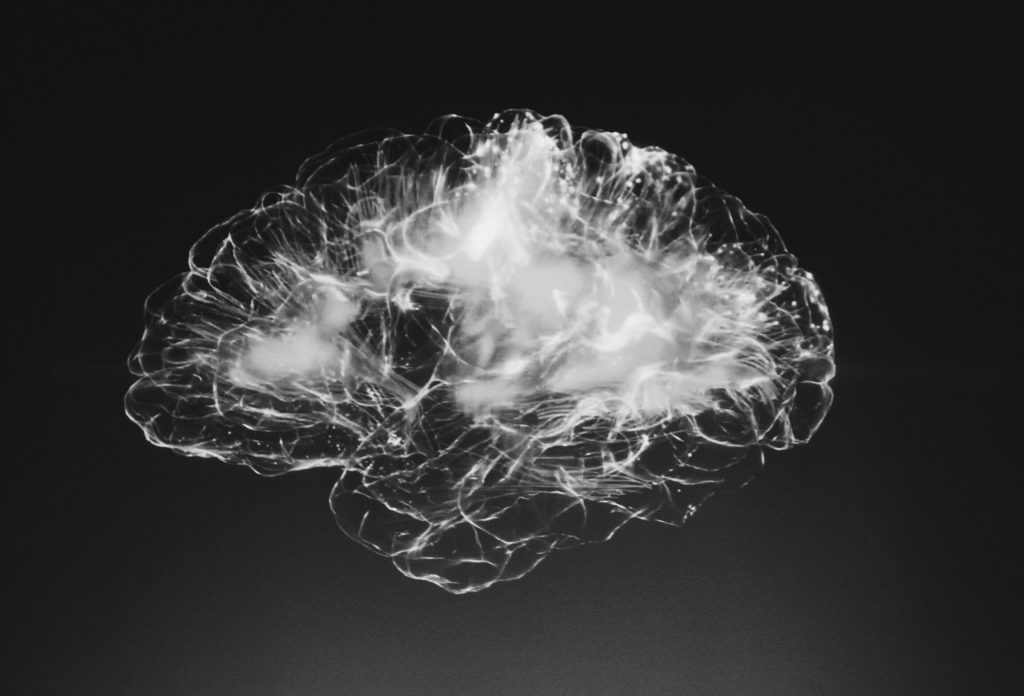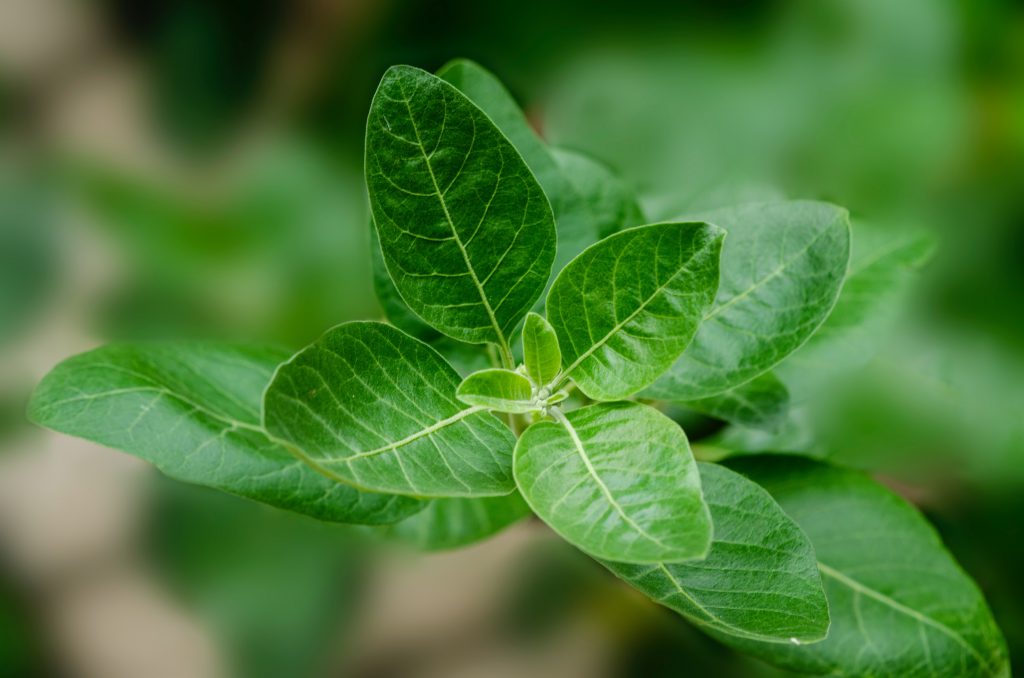Have you ever had one of those days where your brain seems foggier than normal? Like everything you do seems to take more time, effort, and energy. Well, there’s actually a term for that: brain fog.
And sometimes it just needs a little boost.

Our brain never shuts off. It works for us 24/7, 365 days a year, and understandably, it needs a little boost sometimes.
In this article, we’ll discuss what brain fog really is, what causes brain fog, and how to minimize it with five of the top brain supplements.
What Is Brain Fog?
Brain fog is not a diagnosed medical condition, but it is a term that describes a wide array of symptoms ranging from fatigue to low motivation to even depression and anxiety (1).
One of the symptoms below could be a sign of brain fog, or it could be a sign of something else. We each have very different and complex bodies, so what someone thinks as brain fog or fatigue could really just mean you’re drinking caffeine too late in the day. Or you haven’t gotten a lot of movement in. Or you just had a vanilla latte with 35 grams of sugar and now you’re tired.
Brain Fog Symptoms
- Fatigue
- Low Energy
- Difficulty concentrating
- Low motivation
- Irritability
- Headaches
- Forgetfulness
- Confusion
- Anxiety
- Depression
What Causes Brain Fog?
It can be tricky to pinpoint why you’re feeling bogged down by brain fog. A few possible reasons may include:
- Medication Side Effects
- Low B12 (2)
- Iron Deficiency
- Anxiety or Depression
- Underactive Thyroid Gland
- Not Getting Enough Quality Sleep Each Night
If you’re someone who gets at least 7-8 hours of uninterrupted sleep each night, yet you still feel brain fog, you may want to consult your doctor and get a blood test to ensure you’re not deficient in any vitamins or minerals.
The 5 Top Brain Supplements to Reduce Brain Fog
Enter: Nootropics
Nootropics—also called “smart pills” or cognitive enhancers—comes from the Greek ‘nous’ meaning ‘mind’ and ‘trepin’ meaning ‘turning/bending’ (4).
When nootropics were first introduced in 1972, they were mainly used to treat conditions relating to cognitive deficiency such as Alzheimers, schizophrenia, stroke, and attention deficit hyperactivity discover (3).
Since then, research has shown that nootropics also help healthy individuals. Some of the top benefits include improved memory, creativity, executive functions, and motivation (4).
Note: With the lack of scientific research we have on brain fog, we can’t be sure of whether or not you truly have it. Despite this, there are brain supplements (i.e. nootropics) that enhance cognitive function. Read on to find out.
1. Vitamin B-12
Vitamin B-12 is naturally present in some whole foods like red meat, fish, milk, cheese, and eggs (5). As it’s a requirement for red blood cell formation, neurological function, and DNA synthesis, it’s important to get your recommended daily intake in—especially if you’re vegan (since it isn’t found in fruit, vegetables, or grains) (6).
According to a randomized controlled study involving elderly subjects with increased dementia, it was shown that high-dose B-vitamin treatment slowed shrinkage of the whole brain volume over 2 years.This is a seven fold reduction in the cerebral atrophy in those gray matter regions that are especially vulnerable to Alzheimer’s disease (7).
2. Ginkgo Biloba

Taking after its “doctrine of signatures”, Ginkgo Biloba’s (GB) appearance looks much like the brain with its bi-lobed symmetry. Thus, it hosts some powerful brain benefits.
Ginkgo is a type of tree that produces ginkgolides, which have a positive effect on blood circulation and oxygen levels. This then has a positive impact on brain performance and cognitive maintenance (4).
So much so that in animal models, the use of GB can show positive effects on brain damage and neurodegenerative diseases (8).
3. Ashwagandha

Ayurveda—the Sanskrit word meaning “the scripture for longevity”—dates back to 3,000 B.C in India and several south Asian countries. The Ayurvedic herbs used for medicinal purposes are classed as brain tonics or rejuvenators.
And the most important brain tonic, you ask? Ashwagandha (9).
Ashwagandha is a plant with many uses. It’s most known for its anti-oxidative properties in order to enhance neuroprotection and overall well-being.
In one study, scientists used cultured glioblastoma (an aggressive form of brain cancer) and neuroblastoma (a cancer that develops from immature nerve cells found in several areas of the body) cells to examine the effect of extracts as well as their bioactive components for neuroprotective activities against oxidative stress (10) (11) (12).
And the results are in: the bioactive compounds from the Ashwagandha leaf hasve neuroprotective potential and may serve as a top supplement for brain health.
4. Bacopa Monnieri
Also known as “brahmi” or water hyssop, this herb is number two in line of important Ayurvedic brain tonics.
It’s considered to be a “medhya rasayana”—an herb that sharpens the mind and the intellect (13).
In one study, the goal was to see whether brahmi could inhibit the release of inflammatory cytokines (small secreted proteins that are released by cells, thus effecting the interaction and communication between cells) from microglial cells (a large phagocytic cell found in the central nervous system) and inhibit enzymes associated with inflammation in the brain (14).
The conclusion: Brahmi does, in fact, inhibit the release of pro-inflammatory cytokines. Thus reducing oxidative stress posed on the brain.
5. Lemon balm (melissa officinalis)
Lemon balm—a perennial herb of the mint family Lamiaceae—shows calming results in supporting the mood while increasing alertness.
In a double-blind, randomized, placebo controlled trial, lemon balm extract was used as a treatment for patients with Alzheimer’s disease.
The patients would receive a fixed dose of 60 drops per day for four months. Within four months, the lemon balm extract significantly outperformed the placebo when the patients were tested on the cognitive subscale of Alzheimer’s disease assessment sclae (ADAS-cog). Thus, we can conclude that Melissa officinalis extract is a favorable way to manage mild-to-moderate Alzheimer’s disease while also reducing the agitation felt by patients with this disease (15).
Final Thoughts on Brain Fog
Brain fog? There’s a supplement for that.
With 81% of adults aged 50 and older believing that supplements are at leeast somewhat important to overall health and 69% currently taking a dietary supplemtn at least three times a week, it’s more important than ever to be cautious in the brain supplements you’re buying—as 89% of them do not pass the quality test (1).
Do your due diligence in researching clean, quality, organic products.
Disclaimer: We are not promoting a cure through any of the supplements mentioned in this article. This is exclusively an informational article. Please consult with a healthcare professional before you start any new supplements—as they may react negatively to other medications.
References
- What Causes Brain Fog? | Nutrition Diva
- Is an underlying condition causing your fuzzy thinking? – Harvard Health
- Cognitive enhancers (nootropics). Part 1: drugs interacting with receptors
- The Psychonauts’ World of Cognitive Enhancers
- Vitamins and minerals – B vitamins and folic acid
- https://www.thieme-connect.de/products/ejournals/abstract/10.1055/a-1109-3405
- Preventing Alzheimer’s disease-related gray matter atrophy by B-vitamin treatment
- https://www.thieme-connect.de/products/ejournals/abstract/10.1055/a-1109-3405
- https://pubmed.ncbi.nlm.nih.gov/20528765/
- https://www.mayoclinic.org/diseases-conditions/glioblastoma/cdc-20350148#:~:text=Glioblastoma%20is%20an%20aggressive%20type%20of%20cancer%20that%20can%20occur,%2C%20nausea%2C%20vomiting%20and%20seizures.
- https://www.mayoclinic.org/diseases-conditions/neuroblastoma/symptoms-causes/syc-20351017#:~:text=Neuroblastoma%20is%20a%20cancer%20that,and%20sit%20atop%20the%20kidneys.
- Combinations of Ashwagandha Leaf Extracts Protect Brain-Derived Cells against Oxidative Stress and Induce Differentiation
- The Ayurvedic plant Bacopa Monnieri inhibits inflammatory pathways in the brain
- Cytokines, Inflammation and Pain
- Melissa officinalis extract in the treatment of patients with mild to moderate Alzheimer’s disease: a double blind, randomised, placebo controlled trial

